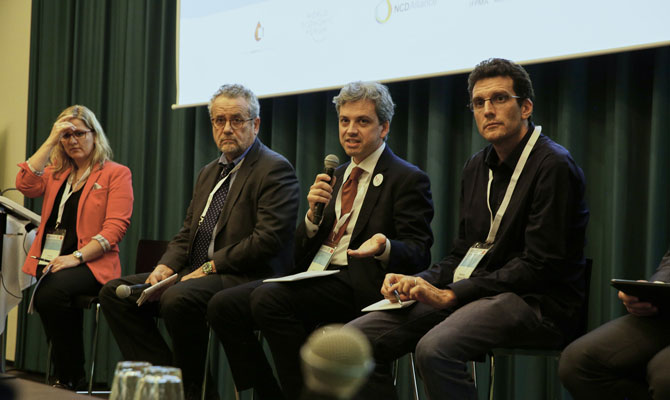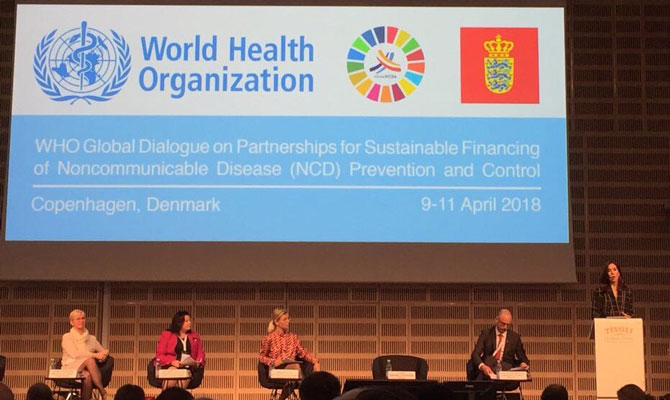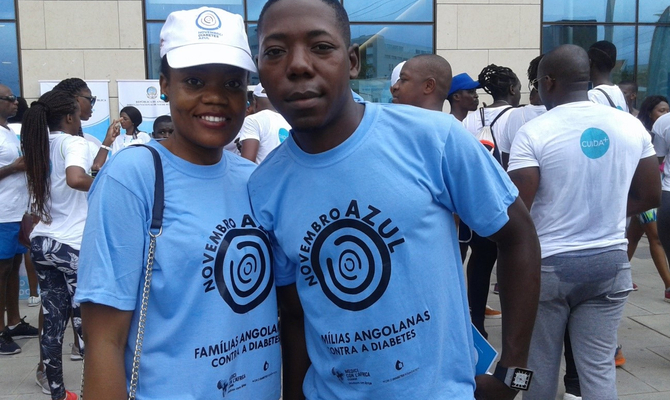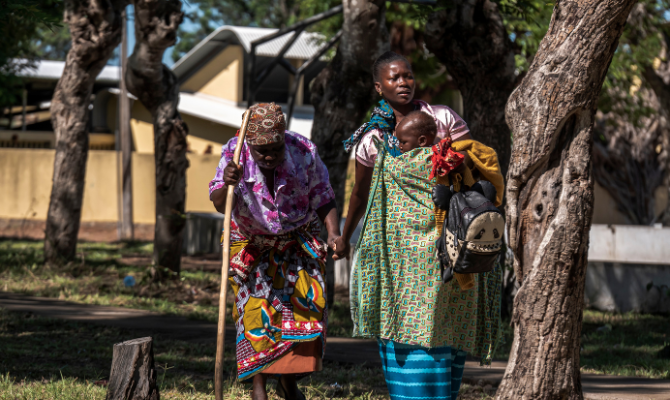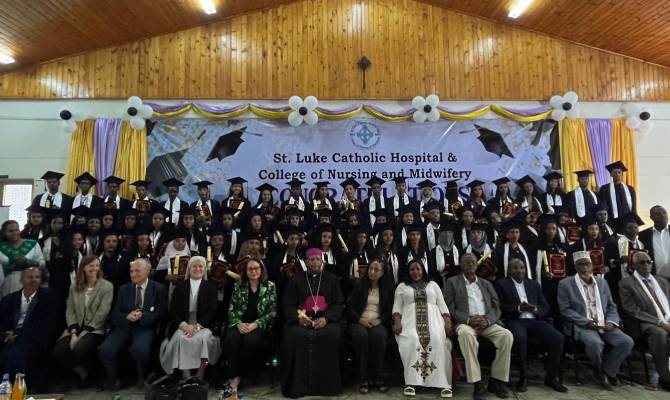On 9th April 2018, Doctors with Africa CUAMM has taken part to the international conference WHO Global Dialogue on Partnerships for Sustainable Financing of Noncommunicable Disease (NCD) Prevention and Control, held in Copenhagen, Denmark. Andrea Atzori, Head of International Relations, on behalf of CUAMM, has presented best practices to tackle NCDs in Mozambique, Ethiopia, Sierra Leone and Angola.
Objective of the conference was to share information on existing and potential sources of finance and development cooperation at the local, national, regional and global levels to implement national NCD responses in order to reach SDG 3.4 through multistakeholder and multisectoral partnerships. The Conference has produced a report with recommendations for consideration by the 3rd High-level Meeting on NCDs, to be held in 2018 by the United Nations General Assembly.
The global burden and threat of noncommunicable diseases represent a major contemporary public health challenge that undermines social and economic development throughout the world. Indeed, for the first time in history, globally more people are dying of NCDs than infectious diseases. Within countries, NCDs-related deaths disproportionally affect the poorest and those furthest behind. Indeed, the NCD epidemic is rooted in poverty, and driven by the impact of globalization of the marketing and trade of health-harming products, rapid urbanization, as well as population ageing.
NCDs can be prevented and treated and Doctors with Africa CUAMM is currently working in Angola, Ethiopia, Mozambique and Sierra Leone in partnership with the World Diabetes Foundation (WDF) and the Ministries of Health and Sanitation to fight diabetes mellitus, gestational diabetes and hypertension. Furthermore, CUAMM has worked to introduce cervical cancer and breast cancer screening in women in Ethiopia and Tanzania. In all countries, activities include awareness raising, sensitization and testing campaigns to spread knowledge about NCDs and empower people against these preventable diseases. Those are examples of specific programs while CUAMM maintains its efforts in health systems strengthening, improving health services with a direct impact on diagnosis and treatment of most NCDs.
